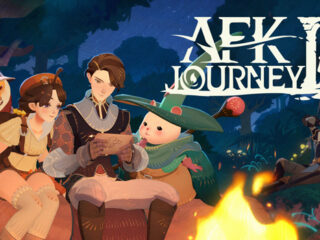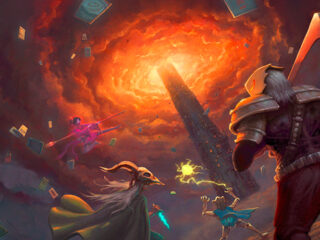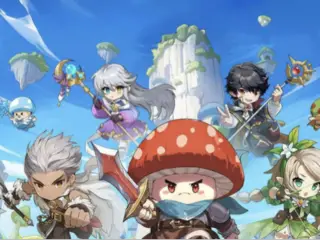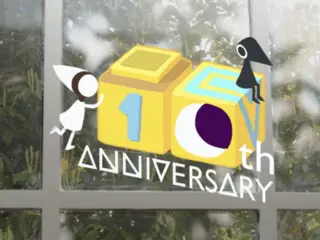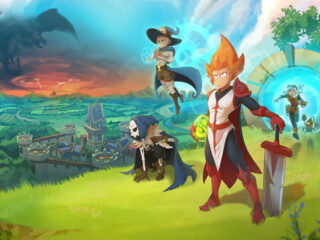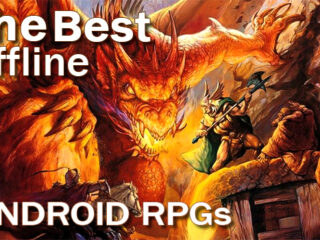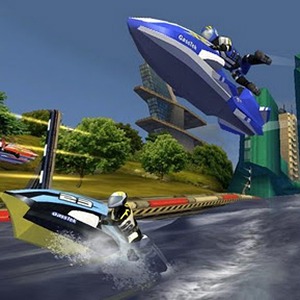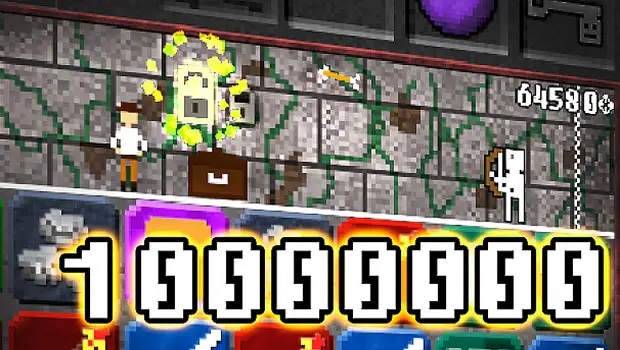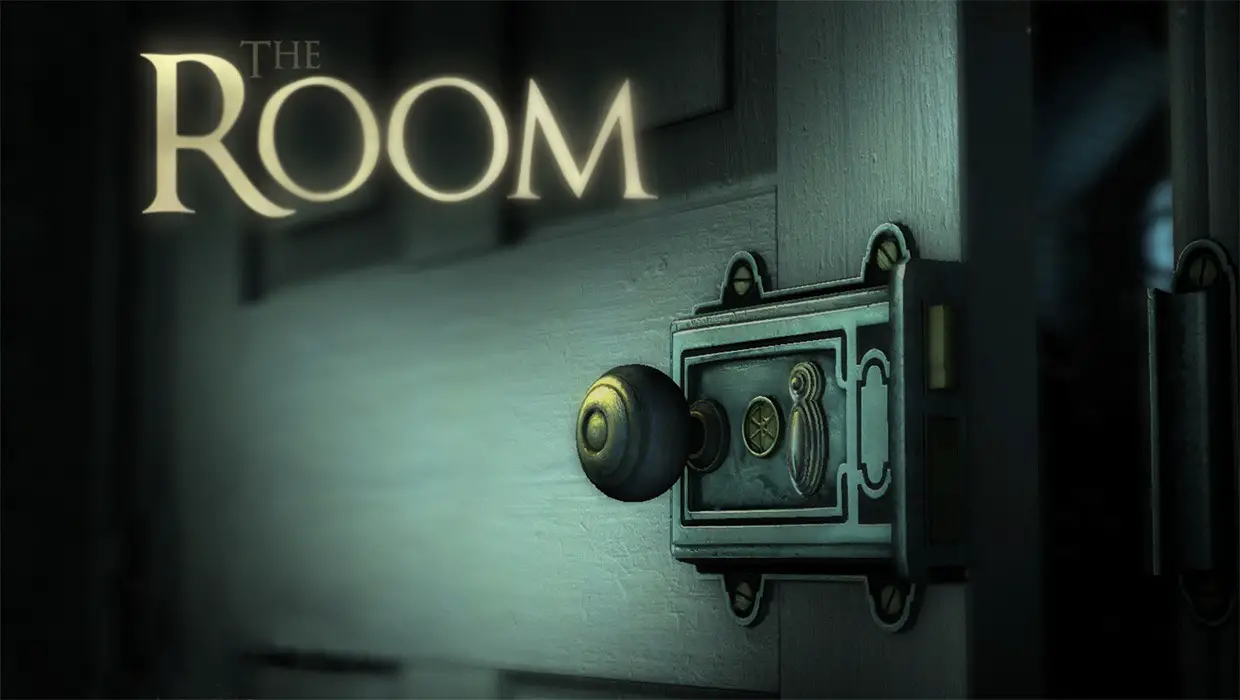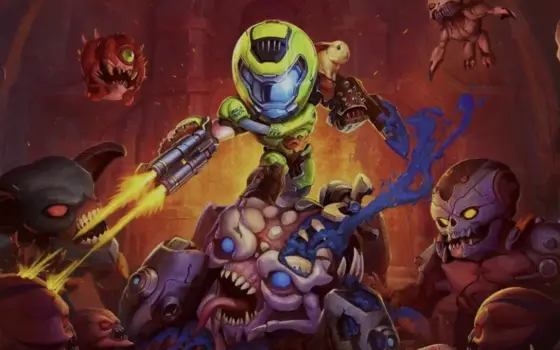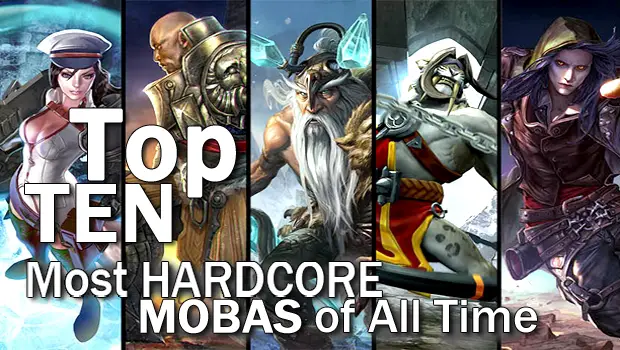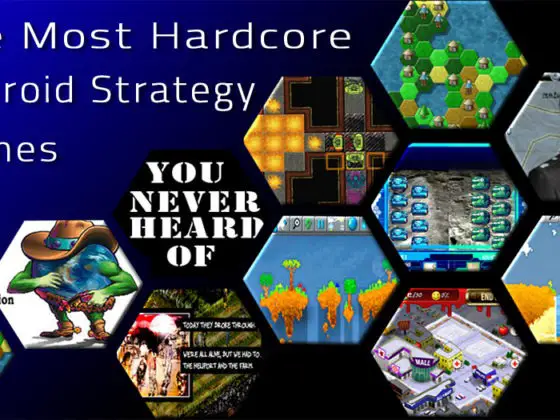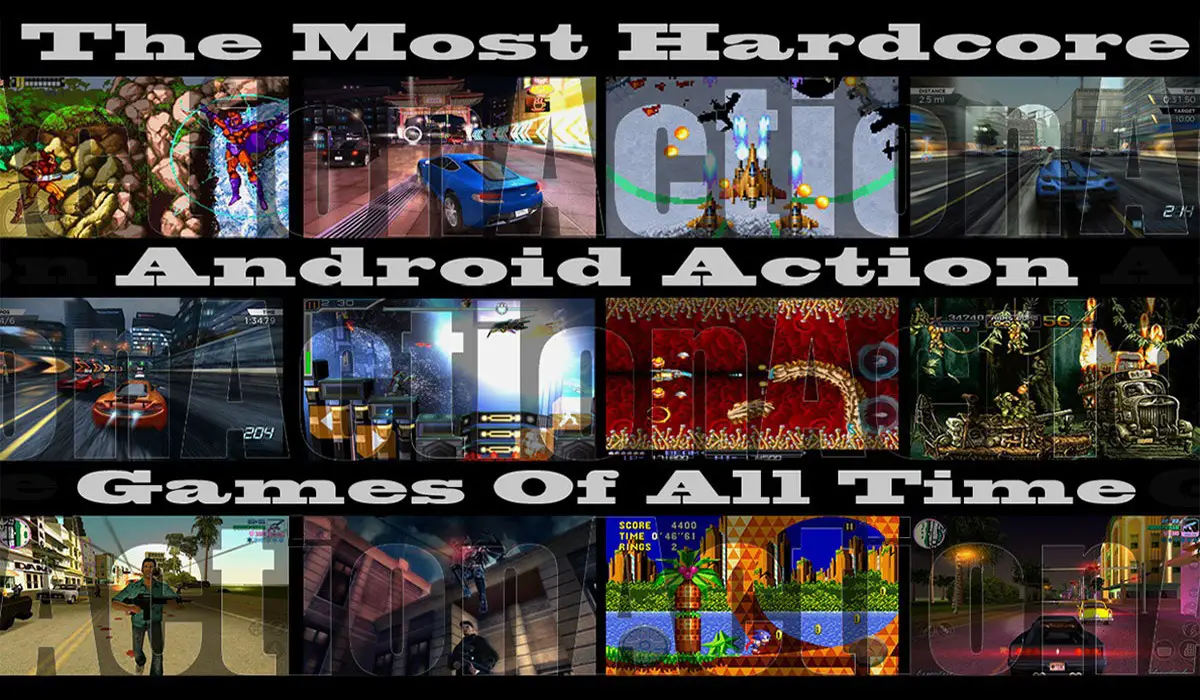When we set out to compile this list, it raised a few questions about just what “independent” means in the Android world. On a console, there’s usually a pretty clear distinction between the latest blockbuster release, and the smaller outsider productions, but the Android world is one of digital downloads and smaller budgets, where most released are created outside of the usual publisher system.
And yet we all know when a game screams “indie.” It ultimately isn’t about who owns the company, it’s about the way a game represents a unique, personal vision. It isn’t about ambient music, artsy themes, or any one aesthetic, it’s about the way these games grew from the minds of a very small team, and that they’re somehow different than those created by committee. Every one of the game’s we’ve selected is the work of auteurs, who have created something unique to themselves.
Superbrothers: Sword & Sorcery EP
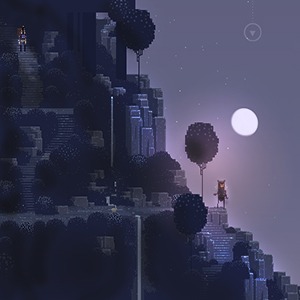 Superbrothers is one of the most anti-commercial games ever to make a million dollars. It’s at once silly and artsy, it’s a mash-up of nostalgia and just plain odd. The jagged, pixilated visuals might seem low-tech, but there’s nothing retro about them, and the touch-based interaction, while evocative of the adventure games of old, is more of an ambient game of discovery. If the indie movement ever needed a poster child, this could be it.
Superbrothers is one of the most anti-commercial games ever to make a million dollars. It’s at once silly and artsy, it’s a mash-up of nostalgia and just plain odd. The jagged, pixilated visuals might seem low-tech, but there’s nothing retro about them, and the touch-based interaction, while evocative of the adventure games of old, is more of an ambient game of discovery. If the indie movement ever needed a poster child, this could be it.
1
Gene Effect
 From the moment you boot up Gene Effect, you can see that it’s a labor of love. Without borrowing too heavily from any one game, Gene Effect is a gushing love-letter to the European computer games of the early ‘90s. It’s a slow, methodical action game in which players have to survive in a ship with hardly any offensive capabilities. In a world where tiny ships are usually armed to the teeth, Gene Effect runs completely against the grain.
From the moment you boot up Gene Effect, you can see that it’s a labor of love. Without borrowing too heavily from any one game, Gene Effect is a gushing love-letter to the European computer games of the early ‘90s. It’s a slow, methodical action game in which players have to survive in a ship with hardly any offensive capabilities. In a world where tiny ships are usually armed to the teeth, Gene Effect runs completely against the grain.
1
Riptide GP
Riptide GP is very different than the other games on this list. In aesthetic and atmosphere, it could easily fit in among the big studio creations. But Riptide is the product of the two-man team at Vector Unit, and it champions the nearly dead sub-genre of jet-ski racers. Not only that, but its amazing water physics would be considered top-notch even in a console game. Riptide
1
Super Hexagon
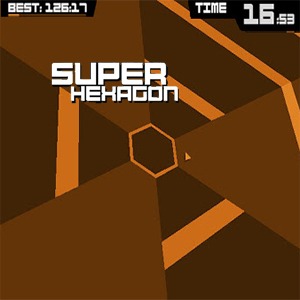 It’s telling that one of the barest, most minimalistic games on the Android is also one of its best selling. Super Hexagon is the sort of game you could never pitch to anyone. It consists of nothing more than a super-difficult series of walls that close in from the outside of the screen, as you try to move a tiny marker out of the way. The first time you play, you will die within 5 seconds. By the time you manage to last a minute, you’ll feel like a champion. If someone told you that insane challenge was the way to mainstream success in the mobile market, you’d have probably scoffed, but luckily there are developers like Terry Cavanagh to prove us all wrong.
It’s telling that one of the barest, most minimalistic games on the Android is also one of its best selling. Super Hexagon is the sort of game you could never pitch to anyone. It consists of nothing more than a super-difficult series of walls that close in from the outside of the screen, as you try to move a tiny marker out of the way. The first time you play, you will die within 5 seconds. By the time you manage to last a minute, you’ll feel like a champion. If someone told you that insane challenge was the way to mainstream success in the mobile market, you’d have probably scoffed, but luckily there are developers like Terry Cavanagh to prove us all wrong.
EDGE
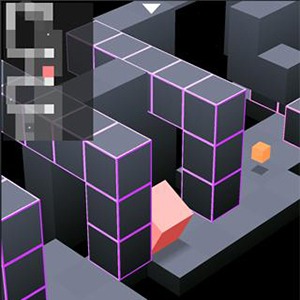 EDGE is the perfect example of an utterly simple concept exploited to its fullest. The premise is simple: “roll” a colored block around a stark, minimalist world of cubes, and bring it safely to the goal. At a glance, it seems almost like Marble Madness with a cube, but as it evolves, it develops into a smart little platformer, minus the ability to jump. Clever level design keeps the game fresh and addicting, so much so that it merited the stand-alone expansion, EDGE Extended.
EDGE is the perfect example of an utterly simple concept exploited to its fullest. The premise is simple: “roll” a colored block around a stark, minimalist world of cubes, and bring it safely to the goal. At a glance, it seems almost like Marble Madness with a cube, but as it evolves, it develops into a smart little platformer, minus the ability to jump. Clever level design keeps the game fresh and addicting, so much so that it merited the stand-alone expansion, EDGE Extended.
1
Rebuild
 While unique zombie game is something of an oxymoron, Northway Games’ excellent builder, Rebuild, goes some way towards making the concept less of a contradiction in terms. In many respects Northway’s builder resembles the superb and underappreciated PC title, The King of Dragon Pass. Like TKDP, Rebuild combines the resource management of a city builder with the kind of interactive narrative usually found in choose your own adventure titles. And while the linear progression at the heart of most choose your own adventures have made for some pretty lukewarm video game ports, the narrative element in Rebuild is more open-ended, with interactions more often than not changing the player’s situation by degrees. Combine this dynamic narrative with the game’s resource management ala a civilization-lite mechanic and add into this mix the fact that the game was primarily developed by auteur Sarah Northway and you have an engaging title that embodies the best of what indie games have to offer.
While unique zombie game is something of an oxymoron, Northway Games’ excellent builder, Rebuild, goes some way towards making the concept less of a contradiction in terms. In many respects Northway’s builder resembles the superb and underappreciated PC title, The King of Dragon Pass. Like TKDP, Rebuild combines the resource management of a city builder with the kind of interactive narrative usually found in choose your own adventure titles. And while the linear progression at the heart of most choose your own adventures have made for some pretty lukewarm video game ports, the narrative element in Rebuild is more open-ended, with interactions more often than not changing the player’s situation by degrees. Combine this dynamic narrative with the game’s resource management ala a civilization-lite mechanic and add into this mix the fact that the game was primarily developed by auteur Sarah Northway and you have an engaging title that embodies the best of what indie games have to offer.
1
Machinarium
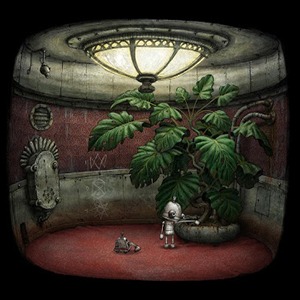 The adventure genre has long been known for their ability to fuse literature and games, and witty dialog and deep narratives have been the key selling points of its greatest exemplars. It’s a strange thing, then, that the best adventure game of the past decade tells its tale without uttering a single word. With stunning, distinctive art, suitable for framing, it manages to tell its tale visually in the grand tradition of animated films like The Triplets of Belleville, Wall-E, or Idiots and Angels. The result is something that feels universal, unbounded by the constraints of language; a playable cartoon that will make you laugh and charm the pants off of your grandmother or your kid brother.
The adventure genre has long been known for their ability to fuse literature and games, and witty dialog and deep narratives have been the key selling points of its greatest exemplars. It’s a strange thing, then, that the best adventure game of the past decade tells its tale without uttering a single word. With stunning, distinctive art, suitable for framing, it manages to tell its tale visually in the grand tradition of animated films like The Triplets of Belleville, Wall-E, or Idiots and Angels. The result is something that feels universal, unbounded by the constraints of language; a playable cartoon that will make you laugh and charm the pants off of your grandmother or your kid brother.
World of Goo
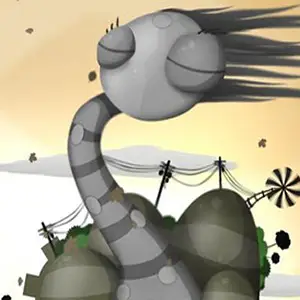 World of Goo is one of the pivotal games in the modern indie movement. It evolved from an entry in the Experimental Gameplay game jam, and it plays like nothing else before it. Essentially an architectural puzzle, it asks players to bridge obstacle courses by constructing elaborate tinker toy-like structures. Despite straying far from any existing genre conventions, it managed to be a breakthrough hit, lending much needed credibility to the indie game movement, and it’s a must-play for anyone looking for a good puzzler.
World of Goo is one of the pivotal games in the modern indie movement. It evolved from an entry in the Experimental Gameplay game jam, and it plays like nothing else before it. Essentially an architectural puzzle, it asks players to bridge obstacle courses by constructing elaborate tinker toy-like structures. Despite straying far from any existing genre conventions, it managed to be a breakthrough hit, lending much needed credibility to the indie game movement, and it’s a must-play for anyone looking for a good puzzler.
1
Uplink: Hacker Elite
 No discussion of indie games could be complete without mentioning Introversion Software. In the age of digital distribution, the world is booming with small-scale developers, but Introversion managed to do it in 2001, when the retail cartels still controlled the industry. With their first title, Uplink, Introversion established their produd tradition of creating experiences that are stripped down, but never feel like they’re missing anything. Uplink’s hacking simulation is so deep and entertaining, it’s easy to forget it has hardly any graphics at all, and it’s the reason Uplink hasn’t aged a day in the last decade.
No discussion of indie games could be complete without mentioning Introversion Software. In the age of digital distribution, the world is booming with small-scale developers, but Introversion managed to do it in 2001, when the retail cartels still controlled the industry. With their first title, Uplink, Introversion established their produd tradition of creating experiences that are stripped down, but never feel like they’re missing anything. Uplink’s hacking simulation is so deep and entertaining, it’s easy to forget it has hardly any graphics at all, and it’s the reason Uplink hasn’t aged a day in the last decade.
Minecraft: Pocket Edition
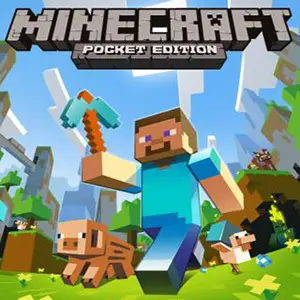 Minecraft is ultimate underdog. Begun as a one-man project, the quirky voxel-based sandbox game has managed to rival the sales of the industry’s biggest AAA, all without a single dollar of advertising. Although the mobile version isn’t yet up to snuff with its PC counterpart, it’s still one of the platform’s most important titles.
Minecraft is ultimate underdog. Begun as a one-man project, the quirky voxel-based sandbox game has managed to rival the sales of the industry’s biggest AAA, all without a single dollar of advertising. Although the mobile version isn’t yet up to snuff with its PC counterpart, it’s still one of the platform’s most important titles.
1
1
1
1
Osmos
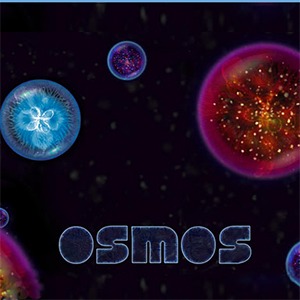 Osmos is like Katamari Damacy on a cellular level. It has only one rule: big things absorb little things and get bigger. With only that simple premise, it manages to be one of the most addicting pure arcade games in recent memory. There’s something deeply satisfying on an almost primal level a about dodging huge globs, only to come back and swallow them up later. Like an abstract revenge story that never ends, Osmos is the kind of game you can lose hours into, five minutes at a time.
Osmos is like Katamari Damacy on a cellular level. It has only one rule: big things absorb little things and get bigger. With only that simple premise, it manages to be one of the most addicting pure arcade games in recent memory. There’s something deeply satisfying on an almost primal level a about dodging huge globs, only to come back and swallow them up later. Like an abstract revenge story that never ends, Osmos is the kind of game you can lose hours into, five minutes at a time.


